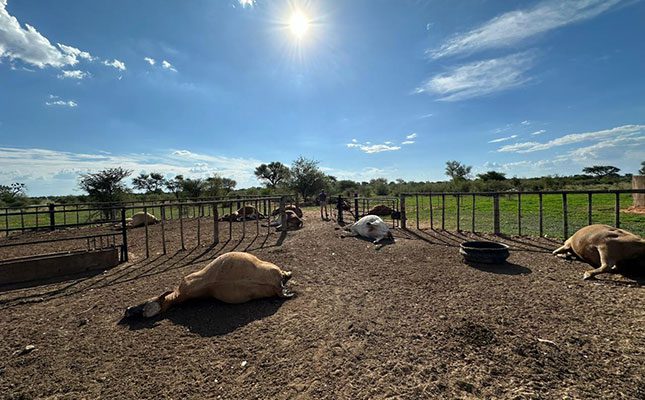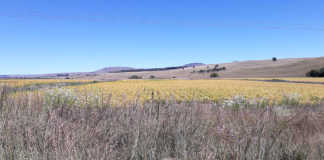
Twenty cows, 10 calves and two bulls were found dead on 19 December 2023. This followed an incident in the neighbouring Bray area at the end of last month in which 33 cows and 11 calves were poisoned.
According to Naude Pienaar, Agri North West’s adjunct general manager, these shocking criminal acts have been happening in the area over an extended period and the criminals getting away with it because law enforcers are looking the other way or acting unprofessionally.
READ Follow these simple steps to keep your farm safe this holiday
“We have been dealing with cases such as these for over ten years and issued many, many petitions to the relevant authorities about crime and criminalities in the remote areas of Tosca and Bray, among others. A number of task teams have been deployed over the past decade to investigate [these incidents] and increase the visibility of law enforcement in an effort to stem stock theft and damage to livestock, but these initiatives have achieved very little success,” he said.
But Naude expressed appreciation over the arrests that followed the November incident, adding the latest case could have been committed to shift the attention away from some other suspects that were being investigated. It could also have been an imitation of the previous case.
Sarel Pretorius, chairperson of Agri North West’s Rural Safety Committee, told Farmers’ Weekly there was a strong suspicion that intimidation could have been involved in the second case.
“Before the Bray incident the affected farmer received a threatening phone call from a suspect. This suspect had in the meantime been arrested and is being kept in custody. Chances therefore are that the second case happened in retaliation after the arrests,” he said.
He added that the two victims of livestock poisoning had lost millions of rand if the dead animals’ production potential was taken into consideration. One cow could produce up to 14 calves in her lifespan, and the deaths of the animals would obviously have an extremely detrimental impact on a cattle-breeding concern.











